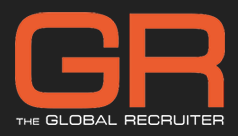Research from Robert Half has find AI, transformation demands and sustainability targets are driving the growth of new roles in the boardroom. However C-Suite leaders are concerned by their ability to find the required skills.
In its study, “Towards the C-Suite 2035” Robert Half found that the majority (83 per cent) of businesses expect that the role of the Chief AI Officer will become more important over the next ten years as companies look for the best approach to tackling artificial intelligence.
Given the pace of change in the current landscape, it’s perhaps unsurprising that a further 78 per cent of C-Suite leaders expect the role of the Chief Technology Transformation Officer to also grow in value in the next decade, while 73 per cent predict that the Chief Sustainability Officer will be more important as ESG pressures intensify.
Equally, the study revealed that traditional leadership roles will simultaneously gain importance, specifically Chief HR Officers, which will be vital to deliver workforce transformation and succession planning, Chief Communications Officers to manage strategic messaging and Chief Operations Officers to ensure stability during these periods of change.
Despite the recognition of these emerging roles, 59 per cent of those surveyed expressed concerns around finding suitable leaders for their company. With emerging roles such as the Chief AI Officer expected to reshape the boardroom, it’s not surprising that many respondents are worried about talent availability, as these roles don’t currently exist at scale.
The analysis did identify a range of skills that all leaders will need. Resilience (75 per cent) and critical thinking (74 per cent) were cited as important, followed by creativity (68 per cent), innovative capacity (67 per cent) and emotional intelligence (65 per cent), which also ranked highly. In addition, 60 per cent stated that workforce transformation experience will be essential for the next generation of executives.
“Given the significant transformation that we’re seeing in the corporate world due to the risks driven by emerging technologies, global market fluctuations and geopolitical tensions, it’s no surprise to see a range of emerging leadership positions developing within the boardroom,” said Charlie Grubb, Senior Managing Director at Robert Half Executive Search. “These roles will continue to evolve over the next decade, and while organisations may be concerned about finding the right talent today, the reality is that many of these capabilities are still emerging. However, the good news is that they can be developed. The attributes required for these positions already exist across the workforce, and the skills can – and should – be cultivated in all leaders.”
Grubb added: “Ultimately, we are gaining a clearer understanding of how future leadership priorities are transforming. To succeed, boards will need to stay ahead of these emerging business and workforce trends – from digital transformation and AI integration, workforce evolution and talent strategy to trust, transparency and stakeholder communication.”


